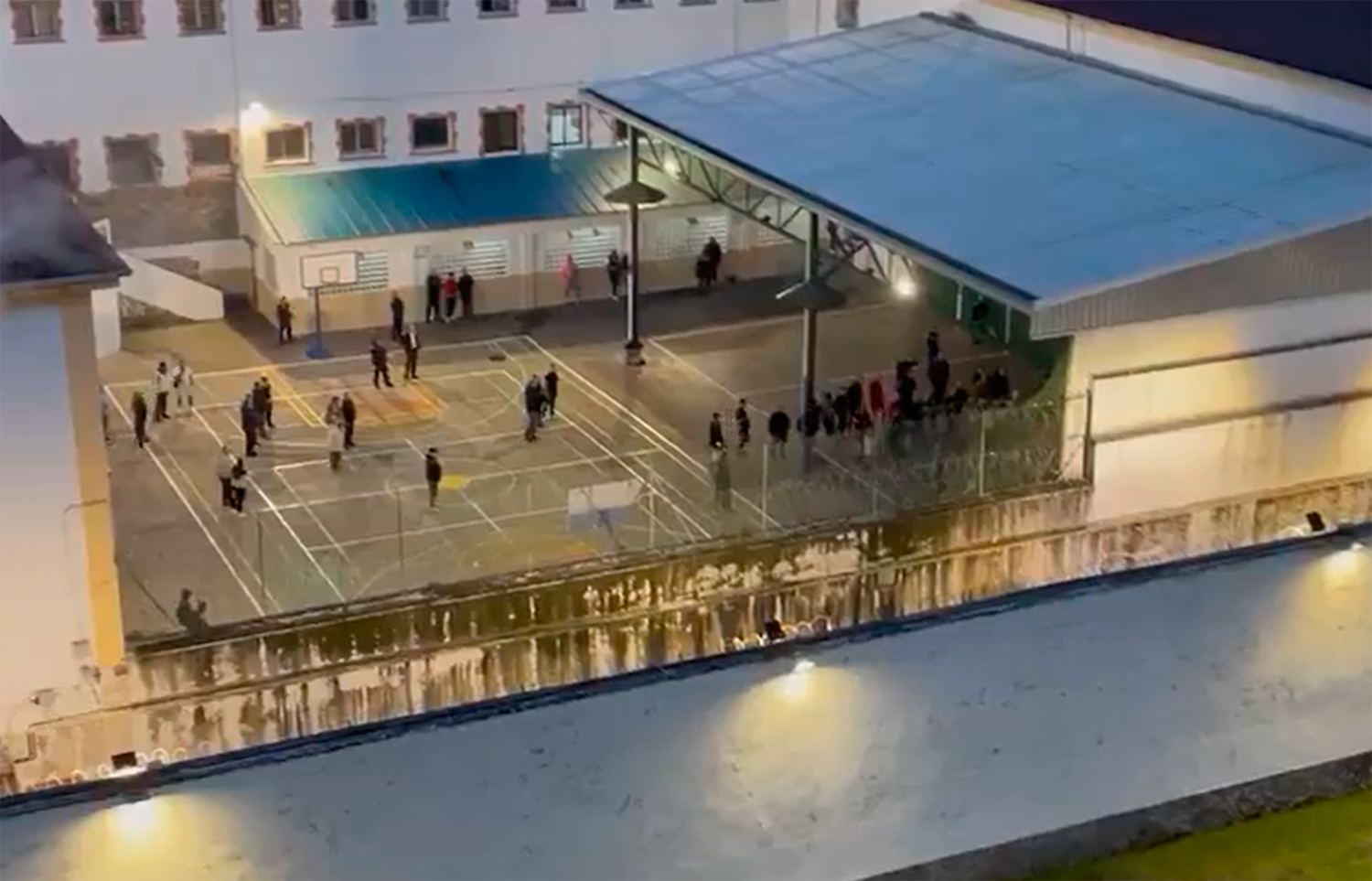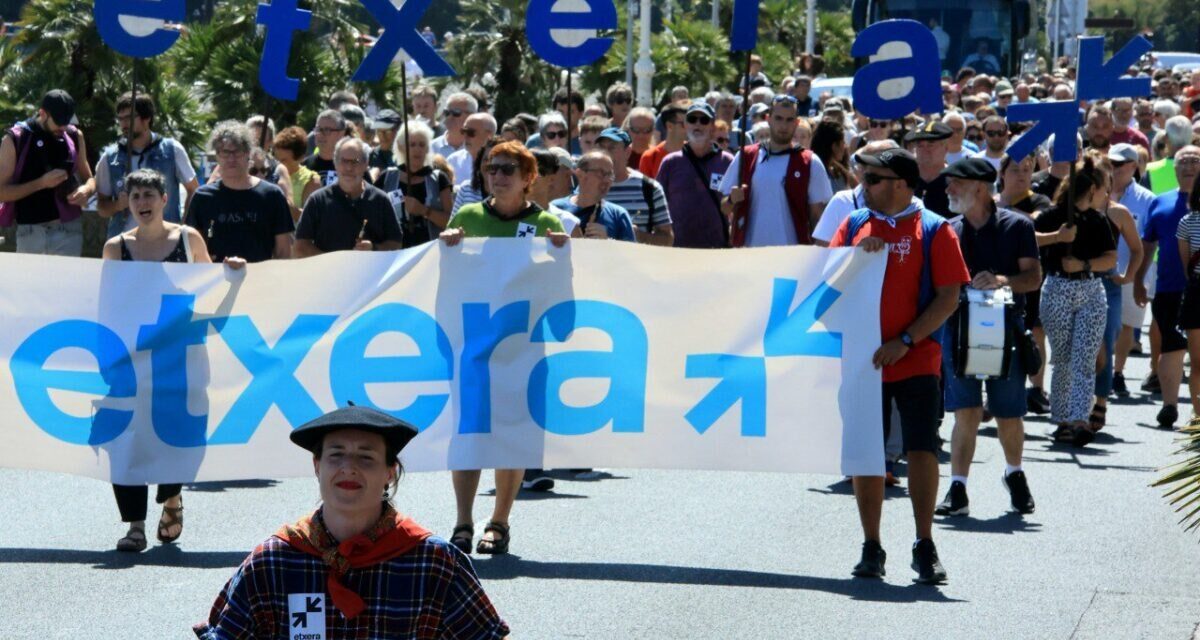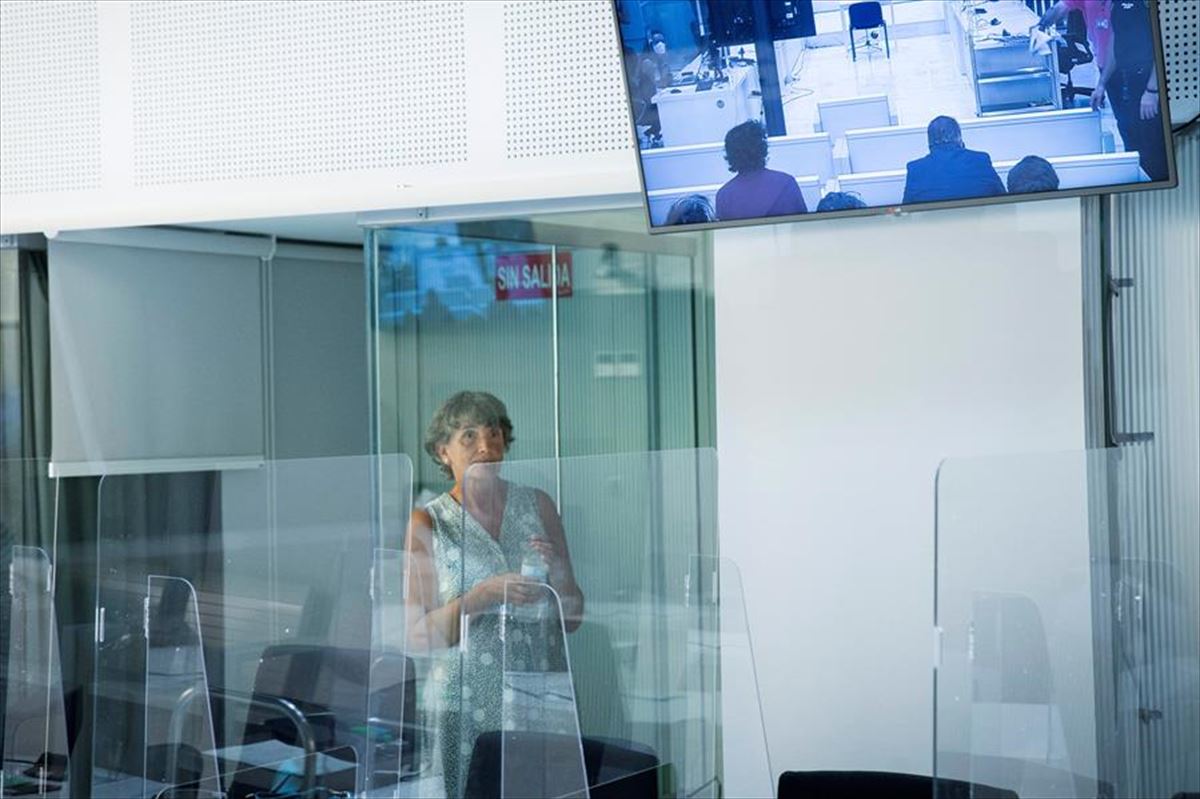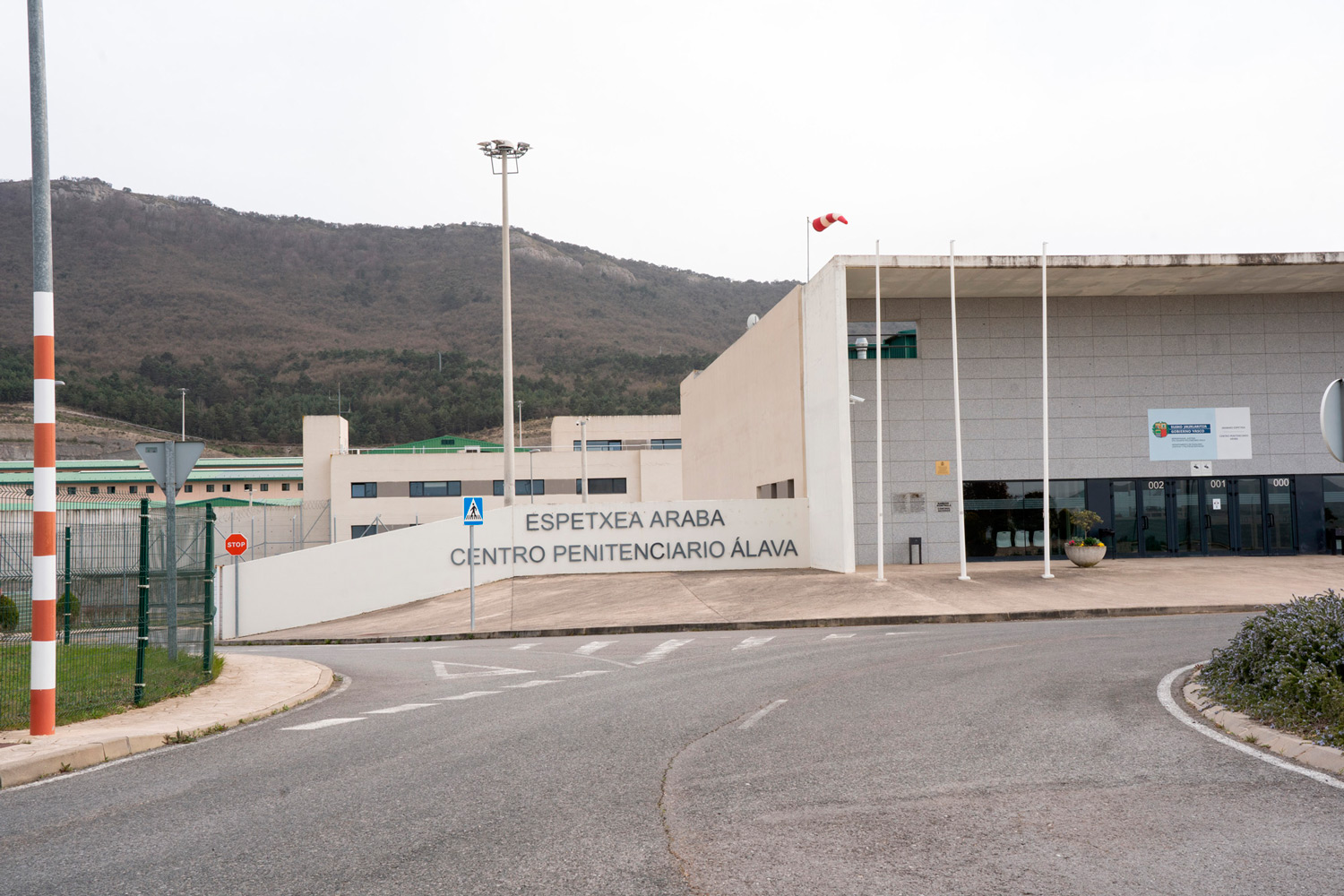Rodero and Lasa have read a communiqué at the end of the Bilbao demonstration
- In Bilbao, where tens of thousands of people have taken the floor, Rosa Rodero and Axun Lasa, victims of ETA and the GAL, respectively. Full reading of the document read in the Official Journal of Gipuzkoa.

Good night to everyone:
Here we are talking about two victims of the violence suffered by our people and we have two objectives in common: on the one hand, that we want to leave our children and grandchildren a reconciled society, that lives in peace, better than the one we have received from our elders; and on the other, that we bet on a new time that Basque society is demanding, that it puts equity and justice above hatred and destitution.
We all have a natural tendency to immerse ourselves in our pain, without seeing the pain of others. But we do not want to take for granted the abandonment of other victims, or the neglect of the violation of rights suffered by prisoners or the marginalization experienced by certain groups of family members.
We do not want anyone to speak on our behalf. We represent ourselves. However, we believe that if we say loud and clear that human rights should be the basis of prisons in Spain and France, we receive what other victims feel. In addition, this activity is protected by law.
That is why we call for there to be no discrimination in the management of prison benefits, for prisoners to approach the Basque Country, for prisoners and prisoners with serious illnesses to be released, for them to be able to change degrees, for unjust sentences to be reviewed…
If we really want to build democratic coexistence in our country, it is essential that human rights be taken as a starting point and meeting point to achieve any social agreement, as a minimum axis of political life.
This should be recognized by all associations with a constructive vocation, away from manipulating any political force, or regardless of ways of putting revenge on the law.
In Euskal Herria, we gradually advance in the processes of reconciliation and empathy, while the State institutions remain silent. We must recognise the value of what has been achieved in a situation without political dialogue: the unilateral decision to abandon violence almost 10 years ago; the dissolution of ETA a year and a half ago; the involvement of civil society in those areas in which the institutions did not intervene because of lack of courage; respect for all kinds of victims; empathy with the relatives of prisoners in the face of their long journeys…
All of this leads us to believe that we are on the road to building a democratic coexistence based on social inclusion and the culture of human rights and peace, to ensure that what has happened is not repeated.
Unfortunately, that is not the attitude of the Spanish State. Last October, after 19 years in prison, Ángel Ochoa de Eribe died 4 months after his release. In fact, despite having suffered a serious illness since 2015, it was not released before the eviction occurred. Let us not deceive ourselves! It is the State that is maintaining this situation, as there are very few steps it has taken in the field of humanization in the field of penitentiary policy.
And today we want to remind the Catalan prisoners, we want to convey to them again our affection and our solidarity.
We are concerned that the constant state of emergency in the courts and prisons has changed the rules for proper justice and an inclusive prison system.
We are talking about human rights. These are not political demands. It is up to the citizens to defend these rights, because it is not possible to build a society reconciled from a criminal policy based on revenge, without overcoming the wounds or consequences of decades of conflict or disagreement. And defending these rights must be the priority of the institutions that we choose.
Despite the progress of the right and the far-right in the November elections, the forces of progressive tendencies have achieved a majority, and so, with determination, the door has been opened to include this issue on the State’s agenda. Even more so when the political parties of Euskal Herria and Catalonia have considered this request inevitable and urgent.
And the refusal of the State to respect these rights will have three consequences for the situation of Basque prisoners and their families:
- The prisoners and their relatives will be kidnapped in a non-existent war, since the war only exists in the imaginary of a power that thinks of a situation of victors and defeated.
- the victim, because he is directly sensitive to the excesses of a rule of law that is not worth considering as such;
- and finally, stop being a prisoner or family member of him or her and become a person with family and prey. And their situation will be the responsibility of everyone.
We would like to recall that what the thousands and thousands of Basques who have gathered in the streets of Bilbao today have supported have also been supported by the Basque institutions: In the parliaments of Vitoria and Pamplona, in the general meetings and in many municipalities. On the basis of this broad support, we can firmly affirm that the State has no problem with an already dissolved organization. The problem is faced by the State with the majority of society that opposes the violation of rights, which does not want the rights of persons deprived of their liberty to be violated on their behalf and their families.
Thank you for being here today. Thank you for working on the Defence of Human Rights. Thank you for working for a better society for everyone.
Thank you very much.
Rosa Rodero and Asun Lasa (victims of ETA and GAL)
Since we were transferred to Euskal Herria from the prisons of the Spanish State, in the prison of Zaballa we have found many deficiencies in the field of communication. We have fewer and shorter face-to-face contacts, we have had to make visits to the speaker in poor technical... [+]




















